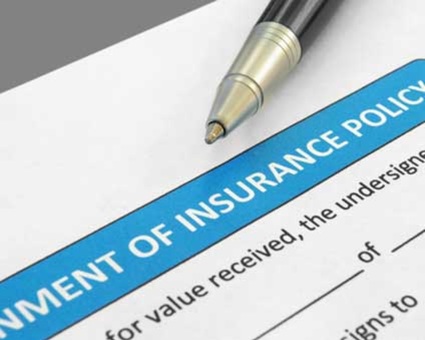Justices to Decide If Injured Motorists Can Recoup Benefits Beyond PIP Limits
The New Jersey Supreme Court has taken up a case that requires it to consider whether motorists who opt for the $15,000 minimum in personal-injury-protection benefits in their insurance policies can recover medical expenses exceeding that amount.
November 15, 2017 at 05:05 PM
10 minute read

The New Jersey Supreme Court has taken up a case that requires it to consider whether motorists who opt for the $15,000 minimum in personal-injury-protection benefits in their insurance policies can recover medical expenses exceeding that amount.
The court on Tuesday granted a petition for certification agreeing to hear the two consolidated cases: Haines v. Taft and Little v. Nishimura.
The court will likely hold oral arguments in the cases next year.
In June, a three-judge Appellate Division panel, in a reported decision, said plaintiffs in automobile accident cases that choose the PIP minimum may recover medical expenses that exceed $15,000. Judge Amy O'Connor, joined by Judges Hany Mawla and Marie Lihotz, said statutes limiting PIP recovery apply only to co-payments and deductibles.
“We are satisfied the language references the litigation of minor medical expenses, such as co-payments and deductibles … not all medical expenses,” O'Connor said.
In the ruling, the appeals court overturned decisions by two Camden County Superior Court judges to bar the admission of evidence from two injured motorists, Joshua Haines and Tuwona Little, who were covered by policies that included the $15,000 PIP limit, but whose medical expenses were greater. Both plaintiffs appealed the trial court rulings.
The Insurance Council of New Jersey and the New Jersey Defense Association contested the appeals as amici, arguing that the Legislature, in various statutes enacted over recent years, sought to limit plaintiffs' recovery for medical expenses based on the PIP options they chose in their policies.
“We decline to adopt this inferential determination,” O'Connor wrote in June.
Haines and Little were injured in separate automobile accidents, according to the decision.
Haines, after his PIP benefits were exhausted and after paying his co-payment and deductible, still had $28,000 in uncovered medical expenses. Little, after her benefits were exhausted, had $10,488 in unpaid medical expenses, the court said.
O'Connor said the relevant PIP and automobile insurance statutes permit them to seek recovery for those unpaid medical expenses—co-pays and deductibles, she added, are different from other medical expenses.
O'Connor noted that the Legislature permitted drivers to choose PIP limits of $15,000, $50,000, $75,000 or $150,000 in order to limit premiums. The Legislature did not, however, include language that limited recovery for medical expenses that exceeded co-payments and deductibles, she said.
“Having the right to recover a claim against a tortfeasor for medical expenses not covered by PIP does not result in a windfall for those who, in exchange for reduced PIP benefits, paid lower premiums,” O'Connor said.
O'Connor quoted a 2011 Law Division ruling in Wise v. Marienski: “Plaintiffs are not having their cake and eating it, too. Their medical expenses are not immediately recoverable. Instead, they must file suit, go through the discovery process, and run the gauntlet of proving defendant's liability. That process typically takes years.”
The NJDA's attorney, Stephen Foley Jr., said it was “appropriate” that the Supreme Court take up the question.
“This is a question the court needs to answer,” said Foley, of Campbell, Foley, Delano & Adams in Asbury Park.
The defendants, Jacob Taft and Jayne Nishimura, are represented by Michael Marone of Morristown's McElroy, Deutsch, Mulvaney & Carpenter. Susan Stryker of Bressler, Amery & Ross in Florham Park represents the ICNJ. The plaintiffs are represented by Vincent Campo of Malamut & Associates in Cherry Hill.
None returned calls about the court's certification grant.

The New Jersey Supreme Court has taken up a case that requires it to consider whether motorists who opt for the $15,000 minimum in personal-injury-protection benefits in their insurance policies can recover medical expenses exceeding that amount.
The court on Tuesday granted a petition for certification agreeing to hear the two consolidated cases: Haines v. Taft and Little v. Nishimura.
The court will likely hold oral arguments in the cases next year.
In June, a three-judge Appellate Division panel, in a reported decision, said plaintiffs in automobile accident cases that choose the PIP minimum may recover medical expenses that exceed $15,000. Judge
“We are satisfied the language references the litigation of minor medical expenses, such as co-payments and deductibles … not all medical expenses,” O'Connor said.
In the ruling, the appeals court overturned decisions by two Camden County Superior Court judges to bar the admission of evidence from two injured motorists, Joshua Haines and Tuwona Little, who were covered by policies that included the $15,000 PIP limit, but whose medical expenses were greater. Both plaintiffs appealed the trial court rulings.
The Insurance Council of New Jersey and the New Jersey Defense Association contested the appeals as amici, arguing that the Legislature, in various statutes enacted over recent years, sought to limit plaintiffs' recovery for medical expenses based on the PIP options they chose in their policies.
“We decline to adopt this inferential determination,” O'Connor wrote in June.
Haines and Little were injured in separate automobile accidents, according to the decision.
Haines, after his PIP benefits were exhausted and after paying his co-payment and deductible, still had $28,000 in uncovered medical expenses. Little, after her benefits were exhausted, had $10,488 in unpaid medical expenses, the court said.
O'Connor said the relevant PIP and automobile insurance statutes permit them to seek recovery for those unpaid medical expenses—co-pays and deductibles, she added, are different from other medical expenses.
O'Connor noted that the Legislature permitted drivers to choose PIP limits of $15,000, $50,000, $75,000 or $150,000 in order to limit premiums. The Legislature did not, however, include language that limited recovery for medical expenses that exceeded co-payments and deductibles, she said.
“Having the right to recover a claim against a tortfeasor for medical expenses not covered by PIP does not result in a windfall for those who, in exchange for reduced PIP benefits, paid lower premiums,” O'Connor said.
O'Connor quoted a 2011 Law Division ruling in Wise v. Marienski: “Plaintiffs are not having their cake and eating it, too. Their medical expenses are not immediately recoverable. Instead, they must file suit, go through the discovery process, and run the gauntlet of proving defendant's liability. That process typically takes years.”
The NJDA's attorney, Stephen Foley Jr., said it was “appropriate” that the Supreme Court take up the question.
“This is a question the court needs to answer,” said Foley, of Campbell, Foley, Delano & Adams in Asbury Park.
The defendants, Jacob Taft and Jayne Nishimura, are represented by Michael Marone of Morristown's
None returned calls about the court's certification grant.
This content has been archived. It is available through our partners, LexisNexis® and Bloomberg Law.
To view this content, please continue to their sites.
Not a Lexis Subscriber?
Subscribe Now
Not a Bloomberg Law Subscriber?
Subscribe Now
NOT FOR REPRINT
© 2025 ALM Global, LLC, All Rights Reserved. Request academic re-use from www.copyright.com. All other uses, submit a request to [email protected]. For more information visit Asset & Logo Licensing.
You Might Like
View All

Engine Manufacturer Escapes Suit Over NJ Helicopter Crash That Killed Country Music Star
3 minute read
Lack of Jurisdiction Dooms Child Sex Abuse Claim Against Archdiocese of Philadelphia, Says NJ Supreme Court
5 minute readTrending Stories
Who Got The Work
J. Brugh Lower of Gibbons has entered an appearance for industrial equipment supplier Devco Corporation in a pending trademark infringement lawsuit. The suit, accusing the defendant of selling knock-off Graco products, was filed Dec. 18 in New Jersey District Court by Rivkin Radler on behalf of Graco Inc. and Graco Minnesota. The case, assigned to U.S. District Judge Zahid N. Quraishi, is 3:24-cv-11294, Graco Inc. et al v. Devco Corporation.
Who Got The Work
Rebecca Maller-Stein and Kent A. Yalowitz of Arnold & Porter Kaye Scholer have entered their appearances for Hanaco Venture Capital and its executives, Lior Prosor and David Frankel, in a pending securities lawsuit. The action, filed on Dec. 24 in New York Southern District Court by Zell, Aron & Co. on behalf of Goldeneye Advisors, accuses the defendants of negligently and fraudulently managing the plaintiff's $1 million investment. The case, assigned to U.S. District Judge Vernon S. Broderick, is 1:24-cv-09918, Goldeneye Advisors, LLC v. Hanaco Venture Capital, Ltd. et al.
Who Got The Work
Attorneys from A&O Shearman has stepped in as defense counsel for Toronto-Dominion Bank and other defendants in a pending securities class action. The suit, filed Dec. 11 in New York Southern District Court by Bleichmar Fonti & Auld, accuses the defendants of concealing the bank's 'pervasive' deficiencies in regards to its compliance with the Bank Secrecy Act and the quality of its anti-money laundering controls. The case, assigned to U.S. District Judge Arun Subramanian, is 1:24-cv-09445, Gonzalez v. The Toronto-Dominion Bank et al.
Who Got The Work
Crown Castle International, a Pennsylvania company providing shared communications infrastructure, has turned to Luke D. Wolf of Gordon Rees Scully Mansukhani to fend off a pending breach-of-contract lawsuit. The court action, filed Nov. 25 in Michigan Eastern District Court by Hooper Hathaway PC on behalf of The Town Residences LLC, accuses Crown Castle of failing to transfer approximately $30,000 in utility payments from T-Mobile in breach of a roof-top lease and assignment agreement. The case, assigned to U.S. District Judge Susan K. Declercq, is 2:24-cv-13131, The Town Residences LLC v. T-Mobile US, Inc. et al.
Who Got The Work
Wilfred P. Coronato and Daniel M. Schwartz of McCarter & English have stepped in as defense counsel to Electrolux Home Products Inc. in a pending product liability lawsuit. The court action, filed Nov. 26 in New York Eastern District Court by Poulos Lopiccolo PC and Nagel Rice LLP on behalf of David Stern, alleges that the defendant's refrigerators’ drawers and shelving repeatedly break and fall apart within months after purchase. The case, assigned to U.S. District Judge Joan M. Azrack, is 2:24-cv-08204, Stern v. Electrolux Home Products, Inc.
Featured Firms
Law Offices of Gary Martin Hays & Associates, P.C.
(470) 294-1674
Law Offices of Mark E. Salomone
(857) 444-6468
Smith & Hassler
(713) 739-1250







